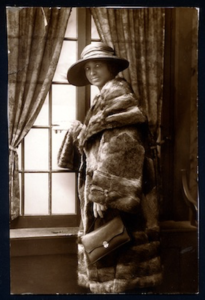The Turner family’s extraordinary story began in West Africa. As the story goes, sometime around the year 1800, the young daughter of a London merchant was accompanying her husband on a voyage when their ship was wrecked by a storm in the Bight of Benin, off the coast of what are now the countries of Ghana, Togo, Benin, and Nigeria. She was rescued by the son of a local chief, and eventually bore a son with him named Alessi. As an enterprising young man of high social standing, Alessi was involved in commerce, trading both legitimate goods and slaves with other local traders and with Europeans. Around 1830 Alessi was himself captured by an English merchant and sold as a slave in New Orleans—illegally because the slave trade had been outlawed by England in 1807 and by the United States in 1808. Later Alessi was purchased by John (Jack) Gouldin of Caroline County, Virginia.
Alessi married a part-Cherokee woman named Rose, and their son Alexander, or Alec, was born in 1845. In 1862, during the Civil War, Alec escaped from the Gouldin plantation and joined up with the Union Army. At that time he took the last name Turner so Gouldin couldn’t claim him.
Alec attended school in New Jersey, found work as a laborer, married young Sally Early, and was hired to work in a slate quarry in Maine. While in Boston because Sally needed medical attention, Alec learned of an opportunity to work for a sawmill and logging operation as a woodchopper, and in late 1873 he relocated to Grafton, Vermont, followed by Sally and three small children in June 1874.
Daisy Turner was born to Sally and Alec in 1883. She lived most of her life in Grafton and died in 1988 at the age of 104. In her later years Daisy became a renowned storyteller and much of what we know about the Turner family stems from her reminiscences and oral histories she told to folklorist Jane Beck, which Beck analyzed, corroborated, and contextualized in her book, Daisy Turner’s Kin: An African American Family Saga (2015).

